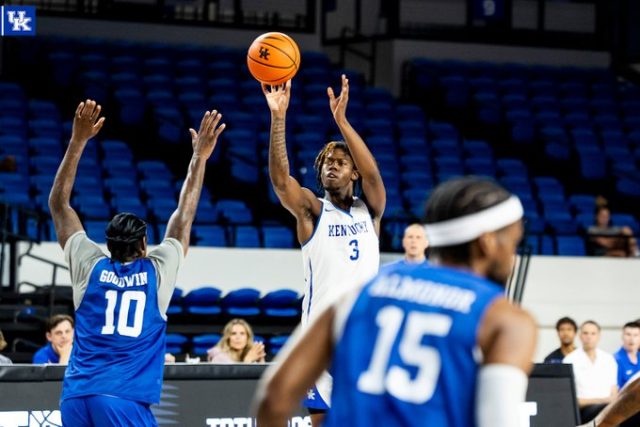Bowling Green colleges, many Kentucky universities don’t require vaccination
Published 7:45 am Friday, April 12, 2019
Measles and mumps outbreaks have been reported across the U.S. – and across college campuses – this year. Earlier this week, Belmont University in Nashville reported that two students have been diagnosed with mumps.
Temple University in Philadelphia has reported 146 cases of mumps this year. In response, that university said last month it would update its policy to require students to have their immunization shots for measles, mumps and rubella, chickenpox, diphtheria, tetanus and pertussis before attending classes this fall.
Trending
Despite data indicating the benefit of mandated vaccination, other colleges and universities without current vaccination requirements might not be inspired to follow suit.
Western Kentucky University does not require any vaccines for admittance.
Bob Skipper, WKU’s director of media relations, said it’s “hard to say” whether the school should update its vaccination policy. Asked about a potential outbreak, Skipper replied: “It’s hard for me to talk in hypotheticals. I’m not a part of that decision-making group.”
He suggested that enforcing a vaccination policy could be challenging.
“How do you verify if students have been vaccinated or not? How do you provide vaccines?” Skipper asked.
WKU offers the measles, mumps and rubella, or MMR, vaccine, as well as vaccines for meningitis, hepatitis A and B, Tdap, HPV, varicella, pneumonia and HPV, according to the university website.
Trending
Southcentral Kentucky Community and Technical College also doesn’t have a campuswide vaccination policy. (Like WKU, programs that require hospital interaction, such as health sciences or nursing, require certain vaccinations.)
Brooke Justice, vice president of student and organizational success at SKYCTC, doesn’t foresee any changes to the policy.
“As this time, I’m not aware of that being a topic of conversation,” Justice said, or “any considerations to change the policy.”
The Kentucky Cabinet for Health and Family Services regulates the requirement for immunizations for children in child care and school. But parents of children or adults in college can opt not to get the vaccines for medical reasons or religious beliefs.
California, Mississippi and West Virginia are the only three states that require a medical reason for exemptions. All other states allow religious exemptions, according to the National Conference of State Legislatures.
Dr. Suman Shekar, pediatrics and internal medicine specialist at The Medical Center at Bowling Green, said the state and school policies need to be updated.
“I think we should make an effort to vaccinate all kids,” Shekar said. “Schools and colleges, if they make them mandatory, then students will take it seriously.”
Eastern Kentucky University, Northern Kentucky University and Murray State University similarly do not require any immunizations or proof of immunizations for admission. The University of Kentucky requires the meningitis vaccine for incoming freshmen living in university residence halls, according to UK.
Since 2014, the University of Louisville has required that all new incoming freshmen students provide proof of routine childhood immunization records for the Tdap, MMR, Hepatitis B, varicella, meningococcal and ACWY, in addition to a tuberculosis screening, according to UofL.
Per guidelines set by the American College Health Association, Kentucky universities recommend that students receive the following vaccines: MMR, polio, varicella, Tdap, hepatitis A, hepatitis B, meningococcal meningitis, meningitis B, HPV and the annual flu shot.
There haven’t been cases of mumps reported in Kentucky this year. Through March 29, there have been 426 cases of mumps in 34 states reported to the Centers for Disease Control and Prevention in 2019.
Through April 4, there have been 465 individual cases of measles reported in 19 states – including two cases in the Barren River region.







